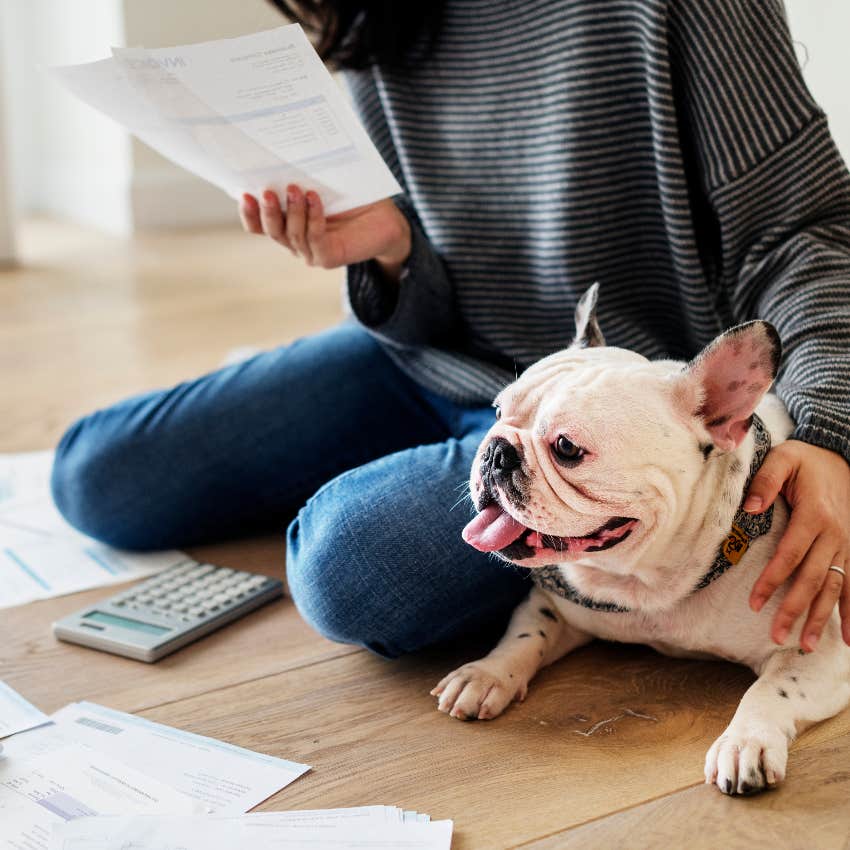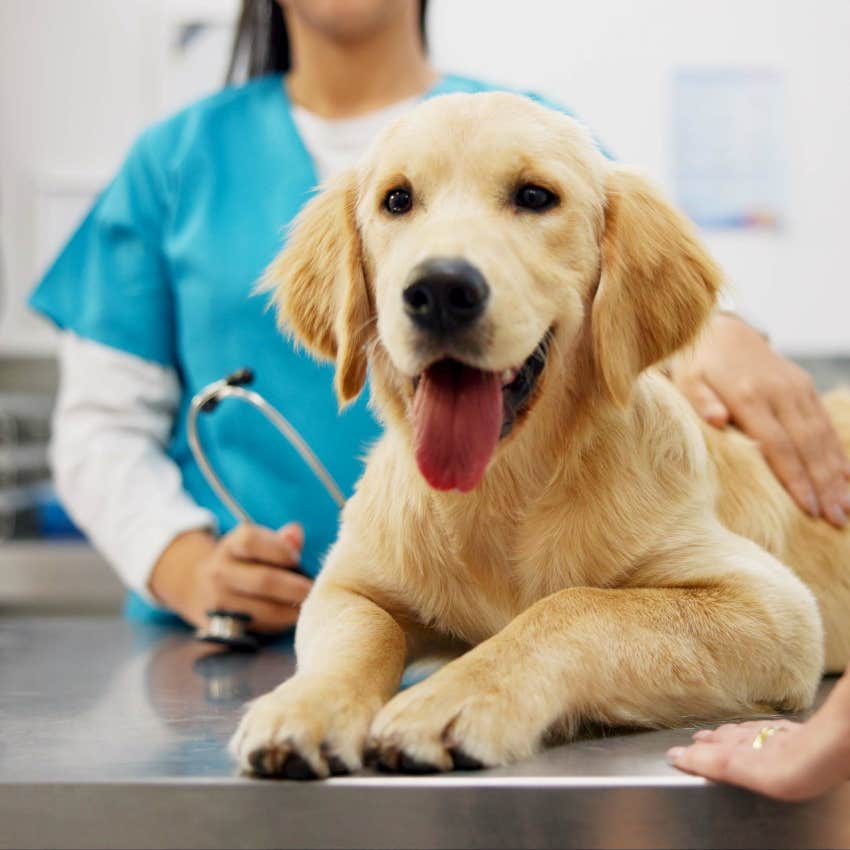Survey Shows Americans Can No Longer Afford To Have Pets As ‘Pet Debt’ Skyrockets
It's hitting Gen Z the hardest. But thankfully, vets say there are precautions pet owners can take.
 PeopleImages.com - Yuri A | Shutterstock
PeopleImages.com - Yuri A | Shutterstock As we all know, the high prices caused by the inflation we saw after the pandemic have hit pretty much every aspect of our lives. And a recent survey shows that it's not just groceries and rent that have been hit really hard. Pet ownership has become untenable for many Americans.
Thankfully, however, veterinarians say there are steps owners can take to fend off the kind of pet costs that are resulting in massive rates of pet surrenders.
The survey shows that pet debt is skyrocketing as inflation makes pet ownership unaffordable, especially for Gen Z.
Personal finance website Lending Tree recently dug into the issue by surveying nearly 2,000 pet owners about how costs and inflation are impacting them for their 2024 "Pet Debt Report."
 Rawpixel.com | Shutterstock
Rawpixel.com | Shutterstock
Unsurprisingly, 85% of respondents said that inflation has made pet ownership more expensive, with 41% saying they are struggling to afford it. And for 37%, it's even more problematic — they said they have actually gone into debt trying to care for their pets.
So what's the culprit? In a word, everything. Lending Tree's respondents said that high prices have hit every aspect of pet ownership, from pet food and supplies like cat litter to grooming and pet-sitting services.
"Inflation has left many people with less disposable income," LendingTree chief credit analyst Matt Schulz said. "When that happens, you have to make difficult decisions and prioritize your money. For many, that doesn’t leave room for pets." And for a sizable portion of owners, that means drastic measures.
 Bogdan Sonjachnyj | Shutterstock
Bogdan Sonjachnyj | Shutterstock
Many Americans are surrendering their pets due to high costs and pet debt, especially among Gen Z.
Pet shelters and charities have been reporting skyrocketing rates of pet surrenders in recent years, partly due to the high number of people who adopted pets during the height of the pandemic and lockdowns.
But Lending Tree's analysis pulls this into tighter focus. They found that 61% of current pet owners will likely refrain from ever owning a pet again due to costs, and nearly a quarter of respondents said they've actively considered pet surrender for the same reasons.
But for Gen Z, the problem is particularly pronounced. While just 12% of respondents said they've actually surrendered a pet, a full 25% of Gen Z pet owners have. That age group is, of course, more financially strapped than any other demographic nowadays, so this is sadly unsurprising.
Even those who are still getting by with their cat or dog are seriously reconsidering it in the future. Lending Tree found that 61% of current pet owners say their current pet will be their last, and they will not pursue pet ownership in the future.
Thankfully, veterinarians say there are steps pet owners can take to avoid the big expenses that typically result in pet debt.
It's not just high costs causing issues for pet owners. It's also unexpected big-ticket expenditures that are sinking them into debt. Of the 37% of pet owners who said they've gone into debt, 68% said it was a medical emergency that caused it.
But veterinary surgeon Pete Wedderburn recently told TrustedHousesitters, a U.K. website and app that includes pet-sitting among its services, that there are five steps pet owners can take to stave off the most common issues that lead to pet emergencies.
1. Brush their teeth daily or invest in dental chews
According to Cornell, 90% of dogs over four years old have periodontal disease, a frequent cause of huge veterinary bills.
Dr. Wedderburn says daily brushing is the "gold standard," just like for humans, but chews are a good option for those with pets unwilling to "open their mouth and sit still."
2. Weigh your pet regularly
Pets being overweight can not only result in health problems but can make it harder to notice issues like growths.
Dr. Wedderburn urges owners to intervene if their pets gain weight and to offer them fruits and vegetables as treats, which many animals love. They also double as an aid to keep teeth clean.
 CHUANGXIN ZHOU | Shutterstock
CHUANGXIN ZHOU | Shutterstock
3. Prevent parasites
Left unchecked, fleas and worms can cause a host of serious issues in pets, from skin infections to anemia. Dr. Wedderburn says that if your pet exhibits any symptoms — including dull fur, bloated belly, blood or eggs in the stool, and dragging their bottom along the floor — you should speak to a vet immediately.
4. Stick to annual check-ups
Though annual check-ups cost money, Dr. Wedderburn says they allow owners and doctors to focus on "prevention rather than cure," often saving thousands of dollars.
He adds that many vets offer member clubs or subscriptions that include basic check-ups and services that will help avoid surprises.
 PeopleImages.com - Yuri A | Shutterstock
PeopleImages.com - Yuri A | Shutterstock
5. Ensure proper exercise
"Proper exercise is a must" for both dogs and cats, Dr. Wedderburn says, adding that "all dogs should have half an hour, twice daily, going for a walk of some type." This helps stave off anxiety and destructive behavior, of course, but also prevents weight gain, joint issues, and muscle loss that can progress to serious health issues over time.
As inflation continues to ease, hopefully so will the costs of pet ownership. But until then, it's good to know that there are preventative measures owners can take to avoid the most extreme outcomes when it comes to pet debt.
John Sundholm is a news and entertainment writer who covers pop culture, social justice and human interest topics.

